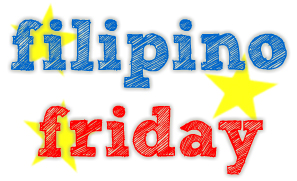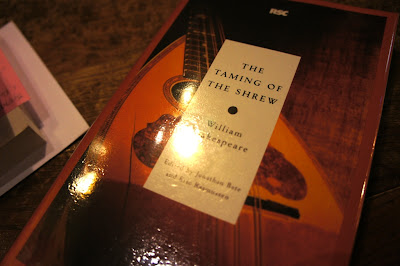Last weekend was quite filled with book-ish activities. There were a couple of book launches in the metro, and 3 book clubs scheduled their meetups during this weekend. (I'm not a member of the 3rd club though.)
So after work last Friday, I went to the other side of the city for a meetup with the book club headed by Orly. Thank goodness they meet Friday evenings! For that month, they've chosen a biography: The Rise and Fall of Imelda Marcos written by Carmen Navarro-Pedrosa.
Unfortunately, that book, which was published in 1987, has been out of print for 10 years. I've even called the publisher just in case they have a few left in stock, but they've run out and they told me that they have no plans of doing another print run. What's a bibliophile to do?
Good thing that the moderator did send me a copy via courier, although it's in a format that I'd rather not divulge. (Hint: It's still not electronic.) It did take some getting used to; you know, reading something ring-bound and white and in letter-sized pages. But hey, it's wonderful reading material so I couldn't complain.
Saying that The Rise and Fall of Imelda Marcos is controversial would be an understatement. It's a book rife with unflattering details. I've always thought that Imelda came from the rich side of the Romualdezes; apparently, she didn't. But what's more unsettling than knowing this info is how there seems to be a huge effort on Imelda's part to cover it up.
Also, the biography is one scathing criticism of Imelda as a government official and as a person as a whole. Here is one woman who's always determined to get what she wants no matter what it takes. She's manipulative, deceitful, and excessive. What's even unbelievable is that a lot of people really take to her. Oy!
I do have one negative comment about the book though and it has something to do with the sources. Most of what have been included in the book are anecdotes from Imelda's relatives, her acquaintances in her early years, and even her household helper. There's always something dangerous about gathering information in this way. Some people just can't help but add "color" to their accounts.
I do hope that the publisher decides on having another print run, even though a limited one. I'd like to have this book on my shelf. Orly was also able to interview the author before the discussion! Check out part 1 here. And I'm posting some pics of the discussion for you, dear reader.
Orly, having the members pick out the discussion questions
Another book that I'd like to have, also out of print
This is the first part of the biography.
The food that I had that night
From the top: seafood chowder (not good),
warm foie gras salad (not good),
grilled cheesesteak sandwich (good)
The requisite group shot



































